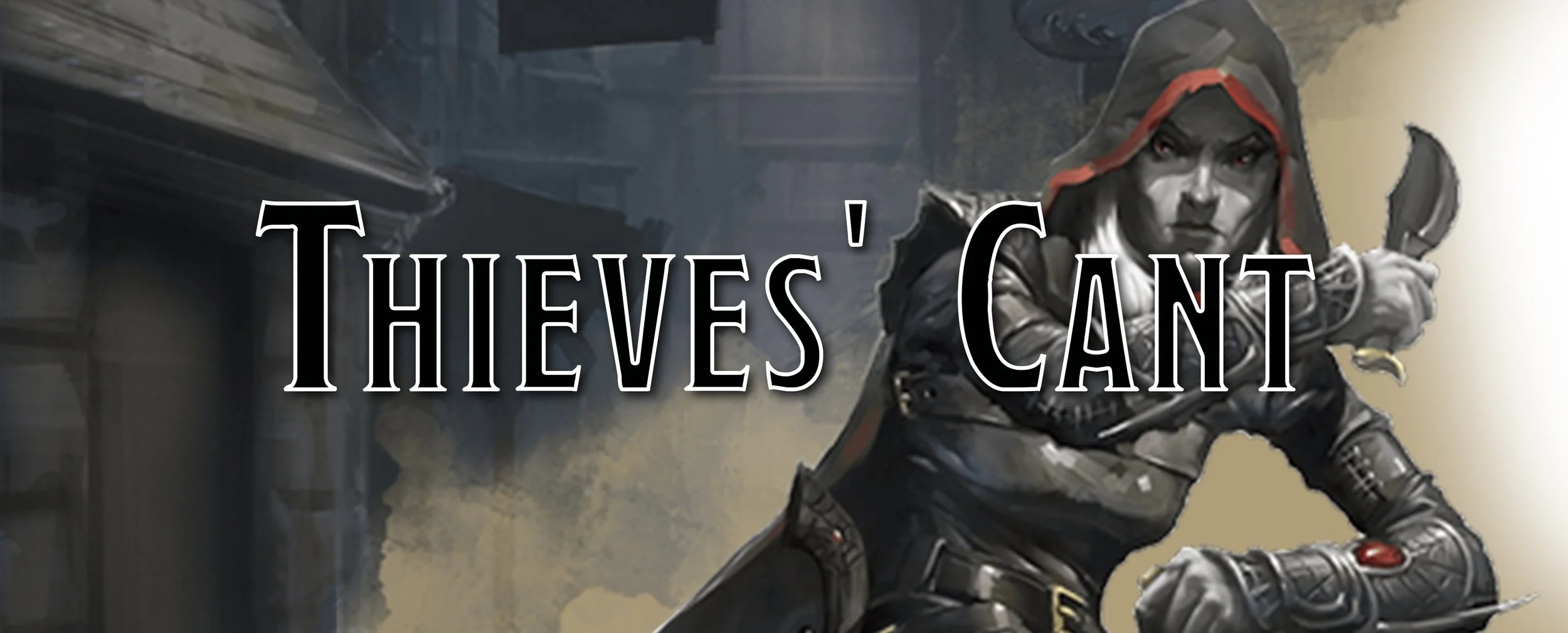Cult Boons - Homebrew
Header Image: Princes of the Apocalypse (2015) by Wizards of the Coast
I have written about cults before, in the context of why you might join one, why primordials seem to attract them, and even showed off the Cult of the World Maker - a cult in my own world that is going around causing problems for others. One thing we haven’t talked about are things that keep a cult together, unique powers granted to cult members, and making your own boons.
Monster Manual 3, 2010 WotC
What Are Cult Boons?
For those who have Mordenkainen’s Tome of Foes (2018), you may have read a section on Diabolical Cults and Demonic Boons - each of those sections provides boons and powers that a cult dedicated to a specific devil or demon might have. This type of power is given to all members, of an appropriate rank, and helps unite individuals into a more unified force to fight and sacrifice your players.
This power granted to the cultists is strong, but not powerful. I say it isn’t powerful, but still strong, because it is impactful, but it is not overwhelming.
To dissect more of what I mean, let’s look at a group similar to cults - those who worship the divine gods of the Outer Planes. In truth, the only difference between an organized religion worshipping the platinum dragon Bahamut and someone worshipping the chromatic dragon Tiamat is that worshipping one over the other is just more socially acceptable. They are both forms of organized religion, one just gets to be called a cult and the other gets to be called respectable.
When a cleric worships a god, they gain access to spell slots and spells. That is powerful and strong. It is not only impactful and it quickly gets overwhelming in terms of power. You can bring people back from the dead, summon spectral guardians, mend bones, destroy undead, and more. You get a lot of power.
Difference in Power
When a cultist worships, well they don’t really worship but rather serve a devil or demon, that demon or devil can’t really give that much power to their followers. Some demons and devils who have cults can barely cast a 9th-level spell let alone give that power to a follower.
Devils, demons, and even primordials rarely have as much power as the divine gods that they can hand out and can rarely give their followers up to 9th-level spells. Instead, they can offer a smaller portion of magic to a wider base of people. This type of magic is referred to as a Cult Boon.
Monster Manual, 2014 WotC
Evidence of the Gods
One reason why devils, demons, primordials, and anyone looking to form a cult might give out Cult Boons is that it is a physical manifestation of that creature’s power. It provides concrete evidence that the creature being served is powerful and that you will be rewarded for serving it.
For example, if you have been asking a god of the Outer Planes to help you bring back someone who has died or carry out a mission of vengeance, you might not get a direct response or spell slots like a cleric gets. You are not getting instant gratification.
On the other hand, a devil might be more than happy to immediately grant you some power in the form of a Cult Boon. This sudden power is more than enough to immediately prove to you that the creature you serve is powerful, listening to you, and can help you gain even more power so you can get revenge, bring back a dead loved one, or whatever else you are hoping to do with this power.
Though, just because a being of questionable motivations grants you greater power doesn’t mean that that being can grant you more power, but the cultists don’t need to worry about that.
Princes of the Apocalypse, 2015 WotC
Creating Boons
When you are creating boons, there are a few things to keep in mind.
Whatever power you give a group of people should be thematic. It doesn’t matter how cool shooting ice from your eyes is, if your cultists all worship fire, it won’t make a lot of sense.
Power granted to NPCs should be obvious. While gaining a +4 bonus to Strength is cool, it’s not really something that is going to be obvious to players. You want to give power that can be shown off so the party knows when they are fighting cultists of the same cult, though you are still free to provide more ‘hidden’ power that the players won’t notice so long as the obvious is shown off too.
Granted power is strong, but not powerful. Cult boons are strong effects, and they can help tip the balance in the cultist’s favor, but they aren’t the only reason a cultist is hard to beat. A cult boon should be something you could give to most any CR creature, so keep that in mind - though, you can always have scaling power with higher CRs getting stronger magic or effects so long as it remains consistent and recognizable to the players.
Goals and Restrictions. Cult boons can include a few roleplaying tips to help you RP as the cult, to keep their ‘personality’ in sync across multiple members of the cult. While not every cultist will behave the same, they will have a unified goal (even if they have various motivations).
Example Boons
The following Cult Boons are ones that I have used for my own games.
Aspects of Lozzny
An elder evil from The Beyond, Lozzny is also known by the title of Wyrm of Worms. Those who serve Lozzny become twisted creatures, with worms said to writhe beneath their skin.
Goals: To bring Lozzny to the Material Plane
Typical Cultist: Any aberration and any creature that has been corrupted by Lozzny and its multitude of worms.
Boon: A cultist is infected by worms that are said to have grown, and fallen, off of Lozzny and then traveled the worlds. These worms infest any creature, whether it is willing or not, and corrupts them, turning them into a tool that Lozzny uses to help usher its form into the world. The creature gains the Worm-Infested trait.
Worm-Infested. The creature has been infected by aberrant worms. It has a telepathic connection that extends up to 5 miles from its creator and its creator knows its specific distance and direction while the creature is within range.
In addition, it gains a bite attack that deals 1d10 + Strength modifier. On a hit, the target must succeed on a DC (8 + Constitution modifier + Proficiency Bonus) Constitution saving throw. On a failed save, the target is infected with a disease - Aberrant Worms.
After 24 hours, the worms begin to multiply and spread through the creature’s body, causing intense waves of pain and can no longer finish a short or long rest. In addition, it gains 1 level of exhaustion every day that it can not finish a long rest. If the target dies from this exhaustion, it becomes a worm-infested creature. An infected creature can repeat the saving throw every 24 hours, ending this disease after three consecutive successes.
Corrupted
While not a ‘true’ cult in that the members all serve the same demon, the corrupted are individuals who have been corrupted by demonic power and forced to serve against their will.
Goals: There is no set goal, they all seek to do evil.
Typical Cultist: Any creature befouled by demonic energy
Boon: A creature that becomes corrupted gains the Fiendish End effect. In addition, their alignment becomes chaotic evil and seeks to cause suffering and death to all living creatures that are not yet corrupted.
Fiendish End. The creature is immediately consumed in infernal fire when it is reduced to 0 Hit Points. All creatures within 5 feet x Proficiency Bonus must make a DC (8 + Constitution modifier + Proficiency Bonus) Constitution saving throw, taking (Proficiency Bonus)d8 fire damage and (Proficiency Bonus)d8 force damage on a failed save, or half as much on a successful save.
Princes of the Apocalypse, 2015 WotC
Cult of the World Maker
This cult is dedicated to Mudanco, a primordial that has been imprisoned somewhere in the world. The cult members are spread throughout the world, often starting mining operations to try and find its prison and release Mudanco.
Goals: To find, and release, Mudanco from its prison.
Typical Cultist: Any humanoid or earth elemental
Boon: A cultist gains the Mudanco’s Blessing feature - this boon grants the target rocky-like skin, protecting them from harm and augmenting their natural damage with the power and weight of stone.
Mudanco's Blessing. While a cultist is wearing no armor and wielding no shield, its AC includes its Wisdom modifier. In addition, when the cultist hits with any weapon, the weapon deals an extra (Proficiency Bonus)d8 bludgeoning damage (included in the attack).
Generic Boons
The following are cult boons that you can apply to your cults, or be inspired by and create your own.
Blessings of the Cult. While the cultist is wearing no armor and wielding no shield, its AC includes its Charisma modifier. In addition, a creature that hits the cultist with a melee attack while within 5 feet of it takes (Proficiency Bonus)d8 force, necrotic, or radiant damage (depending on the cult).
Divine Power. The cultist gains access to spells, the highest spell level is equal to their Challenge Rating divided by 3, rounded down (minimum of 1). These spells are thematic to the cult and the one who grants this power.
Gang Up. If a cultist’s ally scores a critical hit, the cultist can use its reaction to make a melee weapon attack. On a hit, the cultist gains a number of temporary hit points equal to half the damage the target took.
Elemental Bane. The cultist gains resistance to a damage unique to the one they serve. In addition, they can cast the burning hands spell, but it is augmented so that it no longer deals fire damage but the damage that the cultist is resistant to. The DC is equal to 8 + Charisma modifier + Proficiency Bonus and is automatically heightened to a spell level equal to the cultist’s Proficiency Bonus.
Protected by Power. The cultist can spend a bonus action to plead to their god. They then move up to their speed and all attacks of opportunity triggered by this movement have disadvantage.
Sigil. The cultist has a sigil burned into its skin, allowing it to communicate telepathically with all other cultists with the same sigil burned into their skin. The range of this telepathy is 1 mile but is blocked by a thin sheet of lead or 1 foot of stone.
Spread Pain. When the cultist scores a critical hit, they roll their damage dice three times instead of only twice. They can then use their reaction to siphon the creature’s pain into healing, regaining hit points equal to the cultist’s CR.
Victorious Arrival. When the cultist rolls initiative, all enemy creatures within 30 feet of the cultist must make a DC (8 + Charisma modifier + Proficiency Bonus) Wisdom saving throw or be frightened for 1 minute. The cultist has advantage on attack rolls against creatures who are frightened of it. A frightened creature can repeat the saving throw at the end of its turn, ending the effect on a success.
Like what we are doing here?
Support us on Patreon!
You’ll get early access to deep dives, the Homebrew Hoard featuring 500+ monsters, Monster Thursdays, ad-free articles, and more!
Follow us on Twitter to keep up to date on everything we talk about!







